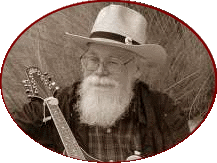Newest Songs
Hell Bound Train
A cautionary tale of damnation and redemption
You know about the train that was "bound for glory". Well, this train was going the other way on the opposite track.
Jolly Roving Tar
A sea song from Newfoundland
I found this jolly sea song from Newfoundland on one of the old 'American Folksay' albums produced on Stinson records by Moses Asch, performed by Frank Warner.
No Peas No Rice
A Bahamian jazz song
A Bahamian song recorded in the 1930s by big band leaders such as Mart Brit and Count Basie and in the Bahamas by Blind Blake Alfonso Higgs.
Thorneymore Woods
A song of the noble poacher, and mean gamekeepers
An English poaching ballad as performed by Louis Killen.
La Bruja
Vampire story from Vera Cruz, Mexico. Boo!
The Devil and Bailiff McGlynn
The devil takes his due
What a fine old Irish tale. But it derives from a history that is not so jolly - the mass evictions and house levelings that took place during the Irish famine of the mid-nineteenth century. No wonder the mother in the story cries "May the devil take that awful Bailiff!".
Spotted Cow
A naughty little English folk song
Here is a traditional English song, at least I think so, I heard it from Steel Eye Span, that parcel of rogues who brought fuzz-tone electric guitar to English folk music.
Italian Carol
A christmas song from Italy
An Italian carol adapted by Pete Seeger from an old tradition in Naples in which shepherds come down from the Calabrian mountains for a festive stay in that city during the Christmas celebration.
Wild Women Don't Have No Blues
A blues for strong women
Mean Old Bedbug Blues
A blues from Bessie Smith
Uncle Joe Gimme Mo
Calypso from Trinidad
Monsieur Banjo
A creole song for kids
This children's song in Louisiana Creole. My version is an adaptation of Pete Seeger's English language version on 'American Favorite Ballads' and a French language version from the Magnolia Sisters on their delightful children's album 'Lapin Lapin'
Featured Songs
Hopalong Peter
An old time banjo song
This was recorded by J.E. Mainer's Mountaineers in the 1930's. I learned it from the NLCR.
The Soldier and the Sailor
An hour of prayer
Mike Seeger learned this song from Nancy Jones, a singer in North Carolina. I researched the song and found serveral very different versions. Some of them pretty rowdy. I adapted three of these verses and toned them down to fit better with Mrs. Jone's version which has a lovely innocence about it.
Johnny Booker
A mule song
Round and Round
An old time string band song from Dr. Bate and his Possum Hunters.
From Dr. Humphrey Bate and his Possum Hunters. Dr. Bate was a master harmonica player but apparently not so hot as a lyricist. This song had one verse and one chorus. The verse was borrowed from another song and the chorus doesn't rhyme. So I decided to fill it out with some more borrowed lyrics and some of my own.
Lord Bateman
A love ballad
Yo Soy un Pobre Vaquero
A mexican cowboy song
The Wonderful Crocodile
The true story of an amazing reptile.
This tall tale comes from Nova Scotia. But sightings have also been made in Ireland, Australia and England. Origins are unknown but it seems to come from broadsides of the 19th century, when the accounts of honest and stout-hearted seafaring men received the respect and credence they deserved. By golly.
Make me a Pallet on Your Floor
A famous old blues/ragtime piece
This song has been a standard for blues, ragtime, jazz, folk and country musicians since before the turn of the century (the 20th, that is).
John Henry
Story of the steel driving man
Joshua Fought the Battle of Jerico
A well known african american spiritual
Surely you know this one. It is said to have originated in slave times. The first known recorded version was by Herrod's Jubilee Singers on Paramount Records in 1922. Harrod's was the successor, at Fisk University, to the pioneering Fisk Jubilee Singers of the nineteenth century.
Down in the Valley
A favorite American ballad
The Man that Wrote the Home Sweet Home
New lyrics to a disreputable old song



